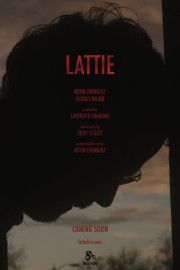Lattie
Kevin Chenault is very low-key as a director, and in “Lattie,” as an actor, but that doesn’t mean he doesn’t have something to say. Working, seemingly, with limited means, his focus is almost entirely on story and character, and his films are not long ones, but they move with purpose and feeling to their conclusions. “Lattie” is probably my favorite one of his on first viewing, because it has a compelling center in it’s main character, and takes that character in interesting narrative directions.
Lattie (Chenault) is an average joe, working class guy in his late 20s, early 30s, I believe. He lives in a small town, with his family nearby. One day, he has a doctor’s appointment, and is given the news no one wants to hear- he has a terminal illness (brain cancer, from what we gather). He zones out as we see the doctor explain his situation, and that feels like the way Lattie goes through life after his diagnosis, even when he interacts with family members. As if his life wasn’t complicated enough, he finds a watch on the ground walking home one day; a kid in the neighborhood had asked him if he had seen one earlier in the film. When he tries knocking on doors, the first house he knocks at has an open door, but also a dead woman on the kitchen floor. He heads out of the house, but also calls 911. Further complicating the matter is how his house is broken into by two teens, and the officer on the case doesn’t seem to know how to handle such matters properly. Lattie goes back to the house, and finds a letter and money hidden in a phone book. Is that what the teens are looking for? It sure seems like it.
In a way that I can’t imagine is all so subtle, I was reminded a lot of Kurosawa’s “Ikiru” while watching “Lattie.” Though Kurosawa’s film established more of the life of Watanabe before his diagnosis in that masterpiece, Chenault presents a lot of the same moral questions in terms of what would a man do in the face of death that Kurosawa asked in his film. True, crime didn’t really fit into the story K told, but the unusual nature of that subplot as presented by Chenault in his film makes it feel less like an unnecessary plot device, and more of a way of exploring Lattie as a character, just as Watanabe trying to get a park built was the moral drive of that film. It’s high praise to be likened to Kurosawa, to be sure, but I’ll heap some more on and say it’s wholly earned by this film, even if it doesn’t land the overall emotional impact of “Ikiru.” “Lattie” feels too passive, and not introspective enough (both as a film and as a character), to really be put in the same rarefied air as that masterpiece, but we’re still drawn into his world, and care about where he ends up, and that’s a tribute to the talent Chenault shows as a storyteller.










